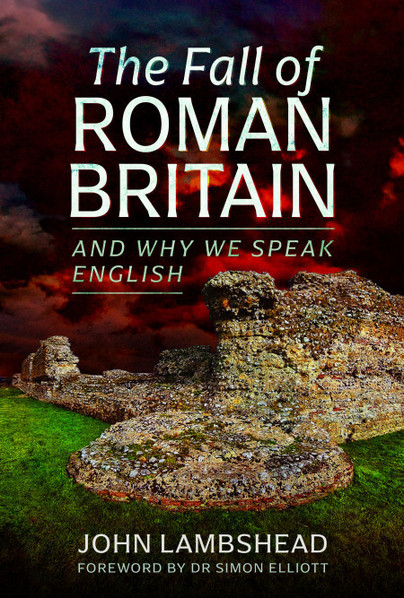
Imprint: Pen & Sword History
Pages: 192
ISBN: 9781399075565
Published: 11th May 2022
Blurb
The end of empire in the island of Great Britain was both more abrupt and more complete than in any of the other European Roman provinces. When the fog clears and Britain re-enters the historical record, it is, unlike other former European provinces of the Western Empire, dominated by a new culture that speaks a language that is neither Roman nor indigenous British Brythonic and with a pagan religion that owes nothing to Romanitas or native British practices.
Other ex-Roman provinces of the Western Empire in Europe showed two consistent features conspicuously absent from the lowlands of Britain: the dominant language was derived from the local Vulgar Latin and the dominant religion was a Christianity that looked towards Rome. This leads naturally to the question: ‘what was different about Britannia?’ A further anomaly in our understanding lies in the significant dating mismatch between historical and archaeological data of the Germanic migrations, and the latest genetic evidence. The answer to England’s unique early history may lie in resolving this paradox.
John Lambshead summarizes the latest data gathered by historians, archaeologists, climatologists and biologists and synthesizes it all into a fresh new explanation.
My Review
Lambshead covers the history of the Roman Empire in Britain, the causes of the end of the Roman Empire, and why English became the dominant language, rather than a Brythonic or Latin vernacular language.
The author synthesises data from a variety of sources, from archaeology, written sources, geology and climatology. I like this approach, since I think everything is connected and the best way to understand something is to draw from all sources to get a rounded picture. We can’t know for certain what really happened but we can make an educated guess based on the information available. When new information becomes available, we should change the hypothesis. That’s the scientific method, in part. Lambshead has the same approach and applies it to the narrative. He advances a couple of hypothesise of his own, which he provides evidence for.
I found the writing interesting and easy to read. This is a work of popular science and history, and covers an extensive period. It has to, because in order to understand why Roman Britain ended the way it did, you have to understand how it started and what happened in between. Including the climate, geological events, epidemics, social changes in Rome and the entire empire.
His hypothesis about the reason we speak English uses genetic data, place-name data, written sources, and archaeology. His hypothesis posits that Old English speakers arrived in small numbers from the fifth century onwards, lived in higher areas with marginal soils. Due to the breakdown of social structure in Roman Britain, the population left struggled to maintain a stable society. The incoming Germanic families and groups had a stable, established culture that they transplanted from the continent to Britain. As such they were able to expand. When they expanded, and formed kingdoms, the populations that had been separated met and eventually started marrying. Because English was the language of the dominant culture, the Brythonic and Romano-British population started speaking English and using Anglian physical cultural items. He believes this is why genetic studies suggests population merging didn’t happen until 800, but graves suggest people were ‘Anglian’ rather than Brythonic as early as the 600s.
There’s also an interesting thing with place names. A lot of early Anglian settlements were in upland places in the south and east of the country, and were named after topographical features. Later settlements in more productive low land areas are often named after people.
The author provides sources that you can follow up with. This is a good book to get started with if you’re interested in the period.
